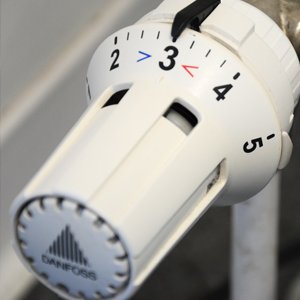Common Boiler Problems
Our boilers work tirelessly throughout the year to give us a continuous supply of heating and hot water. But if a fault develops, your household can be thrown into chaos as a result.
We have complied an easy to understand guide on the most common boiler problems to help you understand what may be going on.
Some boiler problems may be easily rectified without the need to call out an engineer, where as others will require a fully qualified engineer to correctly diagnose and repair the fault.
What ever boiler problem you may have, our Plymouth based gas engineers can help.
Your boiler is loosing pressure
How is it caused?
Low water pressure can be can be the result of either; a leak on the heating system, a leak on a radiator, a faulty radiator valve or a leak on the boiler. Leaks may develop over time due to degrading materials on your heating system.
If your boiler is loosing pressure, you may have a leaking pressure relief valve on your boiler, this maybe identified as a dripping or leaking copper pipe going to outside. This is commonly caused by a faulty expansion vessel within the boiler.
What should I do?
If you experience a low pressure fault soon after venting your radiators, you may need to top up the system using the filling loop and reset your boiler. If you find you are topping your heating system more often, this cold be fault with your expansion vessel and should be addressed by an engineer.
Your radiators are not getting hot
How is it caused?
Radiators may not heat up if; there is air trapped inside them, the radiator valve is faulty or the radiator has a build up of sludge within it. Radiator valves are less likely to function as they were once designed to due to their age.
If you can feel cold patches at the bottom, centre of the radiator this is likely to be sludge in the system (magnetite), that has collected in the radiator.
What should I do?
If your radiator is hot at the bottom and cold at the top, it will likely need to be vented of air. If you do this, be sure to refill the system pressure if required, using the filling loop.
Any other problems with radiators not heating up will need to be looked at by an engineer. They can identify the correct course of action for your problem, which may include the need to have you central heating system powerflushed.
Your hot water is going hot and cold
How is it caused?
If you find you hot water is going hot and cold at your taps (not the shower) you may have a problem with the plate heat exchanger in the boiler.
This is caused by corrosion in the central heating system producing magnetite that blocks the small waterways in the plate heat exchanger. The plate heat exchanger is responsible for transferring heat from your heating circuit to your hot water.
When this becomes blocked, the heating water is unable to circulate through the boiler which will cause heat to back up in the main heat exchanger. When this happens, the boiler flame will go out (as its too hot), which results in a fluctuation in hot water. The boiler overheat stat may kick in or trip.
What should I do?
Unfortunately this problem has developed over many years due to corrosion in the heating system. This kind of fault will need to diagnosed by a qualified engineer. Our engineer can provide you with a suitable course of action depending on the severity of the issue.


